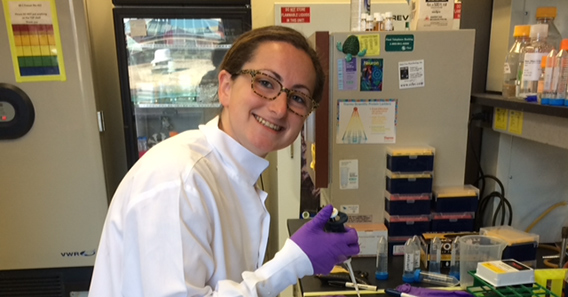
I have spent the past two summers and winter working as part of a research group that specializes in neuropsychology and biological neuroimaging at Yale University’s Translational Brain Imaging Program. The group is led by two associate professors of psychiatry and three postdoctoral fellows from Yale University’s School of Medicine in New Haven, Connecticut. Our research uses neurotransmitter receptor imaging, specifically from Positron Electron Tomography and Magnetic Resonance Imaging scans, to identify different activity levels and substrate affinities of certain neurological receptors in the brain among healthy subjects as well as those diagnosed with Post Traumatic Stress Disorder, Major Depressive Disorder and Bipolar Disorder. My work was focused on two studies that investigate alterations in synaptic vesicle glycoprotein 2A in depression and anxiety subjects, and whether ketamine normalizes SV2A density at the time of its greatest antidepressant response. This particular study is up-and-coming research at many top universities and hospitals, as ketamine administration to depressed human subjects is hypothesized to significantly alleviate depressive symptoms immediately after drug administration as well as for long periods of time. Specifically, at Yale, my research team was investigating the molecular basis of these effects of ketamine administration by examining SV2A density in MDD and PTSD as a correlate of synaptic density, and to determine whether ketamine administration will reverse the synaptic loss in vivo in human subjects.
I performed a range of tasks throughout my internship. I was responsible for talking to psychiatric patients to assess suicide risk, rule out comorbid disqualifying psychiatric illnesses and determine subject qualifications based on patients’ full medical histories, current medications and drug usage, and magnitude of their most recent depressive episode. I presented my proposed subjects to the research group for approval. I also clinically administered and scored psychiatric assessments including the Combat Exposure Scale and Hamilton Depression Rating Scale to assess the severity and validity of subjects’ reported psychiatric episodes and diagnoses. I managed and organized research data such as different receptor densities, radioligand concentration and cognitive data from Positron Tomography Scans, fMRIs, and psychiatric evaluative assessments. I compiled data and information collected from reading hundreds of academic neuroscience research papers into supplemental figures that were included in published manuscripts and received acknowledgements for my work. The most rewarding experience of my summer was being given the opportunity to propose a synergistic mTor antagonist drug interaction that sufficiently crosses the blood brain barrier and reverses the molecular effects of ketamine in vivo. I proposed a combination of drug therapies as the basis of a future study for the lab. I also participated in a postmortem study that investigates SV2A density in postmortem unfixed human brain tissue. Using a frozen microtome, I sliced the human tissue for western blots and immunohistochemistry to measure SV2A levels and geographic location of its expression, respectively.
During my summer experience, I became more independent and discovered that I am very conscientious and a strong leader in the work environment. I learned that I am able to work well both individually and as part of a team. Also, I learned that I enjoy both working in a wet lab and in an office-like environment. Through my experiences, I have discovered a passion for neurobiology and am inspired to further pursue this field of research through graduate work and future employment opportunities.

